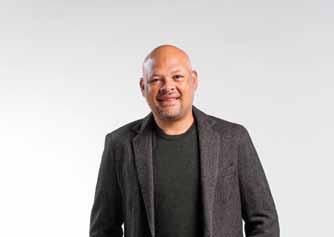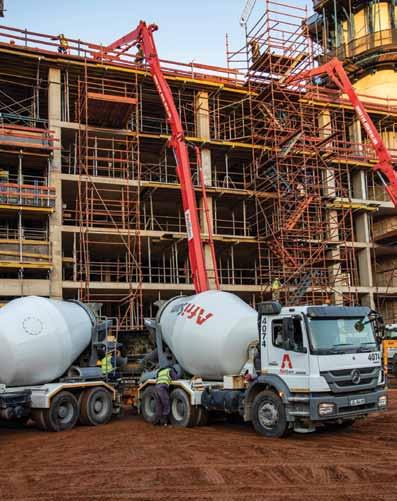
4 minute read
Association trends . . . . . . . . . . . . . . . . . . . . . . . . . . . . 4
rooting out price fixing in mining and construction
Surface mining industry association, aSpaSa, has set out a comprehensive set of guidelines to prevent its members and their clients from intentionally or unintentionally fixing the prices of the products that they produce. the line between collusion and prudent pricing can be blurry at times and the association has set out to debunk and demystify the process Nico Pienaar of pricing and bidding with a set of guidelines for all its members.
Advertisement
“We need our members and customers to be alert to price fixing and be able to recognise what constitutes uncompetitive behaviour and take action to prevent it. Ignorance is no excuse in the eyes of the law and it is our aim to arm our members with information that will prevent them from accidently falling foul of the law and alert them to circumstances that may be perceived to be contrary to fair competition,” says Nico pienaar, director of aSpaSa. he adds that the guidelines are available to members and includes information on the following: • What is bid rigging, rotation and suppression • Surface mines, construction managers and suppliers’ obligations • Consequences of breaking the law • Fines and disqualification of directors • Criminal prosecution and imprisonment • Reputational impact • Ensuring compliance with competition laws and what practices break the rules • Whistleblowing
the guidelines also include templates of non-collusion agreements and other important notes to ensure compliance with competition legislation. It also covers bribery and the implications of being involved in illegal practices. It also outlines the consequences of breaking the law. there is also advice for mine managers and construction projects directors to identify the signs of corruption and how to make it clear that this type of behaviour will not be accepted on their sites. the same applies to sub-contractors and suppliers to these industries. n

quality cement –
A cost effective investment for all South Africans
More than ever, South Africans need to be building a future with a strong foundation and structure, which means putting the best quality materials into our projects – from homes, schools and office blocks to roads, bridges and dams.

Investing in good quality structures is an important mindset especially for developing countries
Richard tomes, sales and marketing executive at construction materials leader afriSam, highlights in particular the quality of cement as the ‘glue’ that holds the country’s infrastructure together.
“Seldom is there a vital ingredient of public value that goes more unappreciated than a high quality cement,” says tomes. “It is central to the way we create our modern world and facilitate development, providing a cost effective path to a better future.” he emphasises that it is not the commodity but the quality that is key. Just as safety is a basic requirement for air travel, so quality is the basis on which afriSam designs, manufactures and targets its range of cement products.
“the use of quality cement in large infrastructure projects – including some of our busiest highways – has ensured the country of significant cost savings into the future,” he says. “We underestimate how the right choices made decades ago are positively impacting on us today; where quality cement has gone into structures long ago, there is less maintenance needed today – and hence more resources can be directed elsewhere, even to people in need when times are hard.”
FuTuRE SAVINgS
Investing in good quality structures is an important mindset especially for developing countries, he says, which cannot afford to be returning to projects for early repairs or rebuilding. this applies as much to each humble home as it does to megaprojects, and requires people to think ahead and consider the savings that good quality will bring. With almost nine decades in the business of cement and concrete technology, afriSam has developed a range of fitfor-purpose cements which prioritise quality – both in their manufacture and their application. “the social context of our cement offering is important to us, and affects the way we align our cements to the market,” says tomes. “home owners, for instance, know that they want a long lasting structure that will not cost them money in years to come – due to structural cracking, for instance.”
ExTRA MIlE
Even where literacy rates and product knowledge are low, customers deserve a cement that will deliver this result, he says. afriSam’s responsible approach is to ensure that there is no confusion in the selection of an appropriate product. the company’s all purpose Cement is Richard Tomes, AfriSam Sales therefore a specially engineered supe& Marketing Executive rior quality cement that can be used in a wide variety of structural and residential applications, including bricks, blocks and masonry. “In South africa, there is a considerable risk that a lack of expertise could lead to an incorrect choice, with someone mixing concrete with a cement meant for plastering, for example,” he says. “We avert that safety risk by going the extra mile and raising the quality of our all purpose Cement to meet all the key requirements of that market segment.” In the manufacturing sector, time is of the essence, he notes. producers of roof tiles, paving and precast items are driven by turnaround times which determine the efficiency of their operations. For this purpose, afriSam provides its rapid












